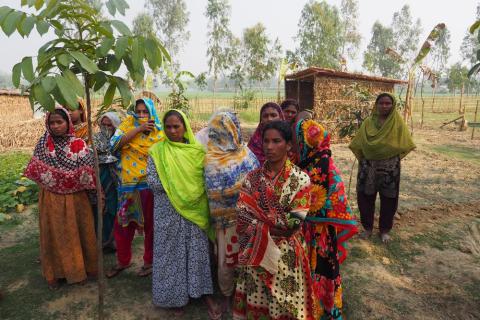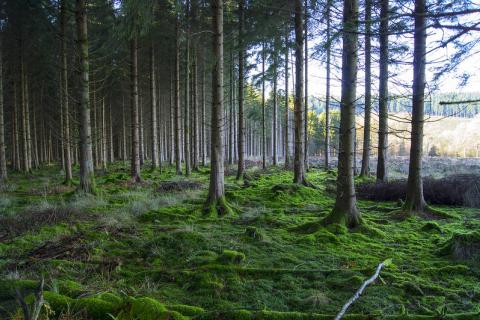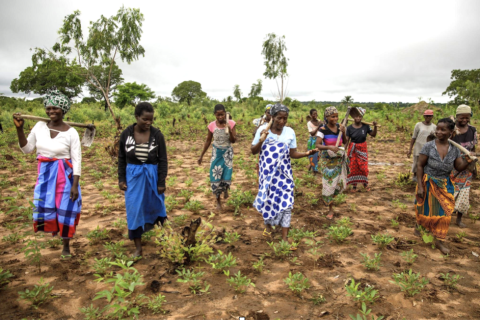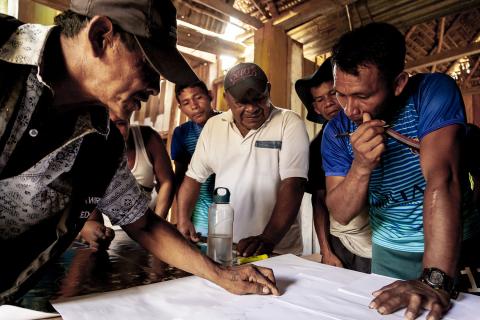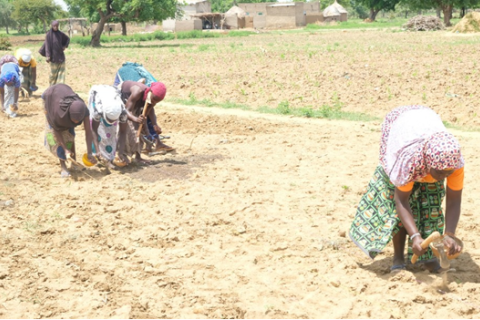From conflict to public-private partnerships: Securing land-use rights and livelihoods in Mozambique
Mozambique’s 1997 land law recognises land rights acquired through customary practice and good faith occupancy, even without a formal title. However, the lack of transparent public confirmation or documentation can lead to conflict. Sr. Land and Resource Governance Advisor Karol Boudreaux discusses how a partnership between USAID and agribusiness Grupo Madal has helped the company and local communities address long-standing land-access issues and improve livelihoods.
Protesting herders to get government support to stop harmful mining operations
Like many countries, Mongolia has been hit hard by the Covid-19 pandemic and its government has been accelerating investments in the mining sector to help the economy. However, this has led to protests by local communities concerned about their land rights, and about their health. Among them is the community of Dalanjargalan, where the WOLTS project has been working with local champions who have been trained in land law, gender issues and participatory decision-making.
Webinar Recap: Pandemic, social unrest and war echoing in the Amazon
New Research: Only 17% of Global Climate and Conservation Funding Intended for Indigenous Peoples and Local Communities Actually Reaches Them
WASHINGTON DC (14 September, 2022)—Of the $270 million in conservation funding invested annually in the tenure and forest management initiatives of Indigenous Peoples and local communities (IPs and LCs)—which is only a small fraction of the total funding dedicated to addressing climate change—only 17 percent went to activities that specifically named an IP or LC organization, according to “Funding with Purpose,” a new research report released today by Rainforest Foundation Norway and Rights and R
Putting community land rights first: responsible private-sector divestment in Mozambique
In Mozambique, community land rights are recognised under the country’s progressive land laws. Yet many private-sector companies also hold long-term leases on wide swathes of land that once belonged to communities. Here, Sarah Lowery of USAID’s Land and Resource Governance Division discusses how USAID partnered with agroforestry firm Green Resources to help it responsibly divest its land-use rights back to local communities.
How private-sector leaseholds affect community land rights
Workshop Recap: Using Data to Tell Compelling Stories About Land
The Land Portal has been using data stories since 2019 as a way to demonstrate how combining data with engaging, memorable and persuasive narratives can empower communities to tell their stories to the world.
Seeking inclusive, economical, and technical solutions for a sustainable land administration system in Mozambique
Mozambique has a progressive land law that came into place through a historically inclusive process. However, there are many obstacles to the proper implementation of the law, including the communities’ lack of formalized land tenure. Terra Firma, one of the LAND-at-scale partners in Mozambique, has worked on achieving tenure security for communities in Mozambique for a long time. To learn more from their experiences and strategies on how to do this in a sustainable way, LAND-at-scale interviewed Maria Muianga from Terra Firma.
Challenges to sustain tenure in Colombia: harmonizing indigenous traditions with ‘modernistic’ principles of economic growth
The LAND-at-sale project in Colombia was the first LAND-at-scale project to kick off. With its mid-term review just concluded, the project provides interesting insights into the challenges of not only achieving tenure security but sustaining it over time within a complex context. LAND-at-scale interviewed Piet Spijkers at Kadaster International, to learn more about their approach to achieve and sustain tenure security in Colombia through the LAND-at-scale project.
Learning from and scaling up tenure security approaches in Burkina Faso
Burkina Faso has a long history of land interventions aiming to achieve tenure security at the local level. The “Observatoire National du Foncier au Burkina-Faso” (ONF-BF) is one of the key players in the country working on mapping land rights within communities at commune-level. How does ONF-BF address the challenge of not only attaining tenure security through mapping, but ensuring these tenure rights last over time?
Land rights on air: how Land Voice supports indigenous communities in Cameroon
In Cameroon, many rural communities are unaware of their rights, in a context where they are increasingly challenged by large-scale land-based investments. Sandrine Kouba from RELUFA explains how setting up a radio programme has helped to inform indigenous communities about their rights and enable them to feel better prepared to face investors.

